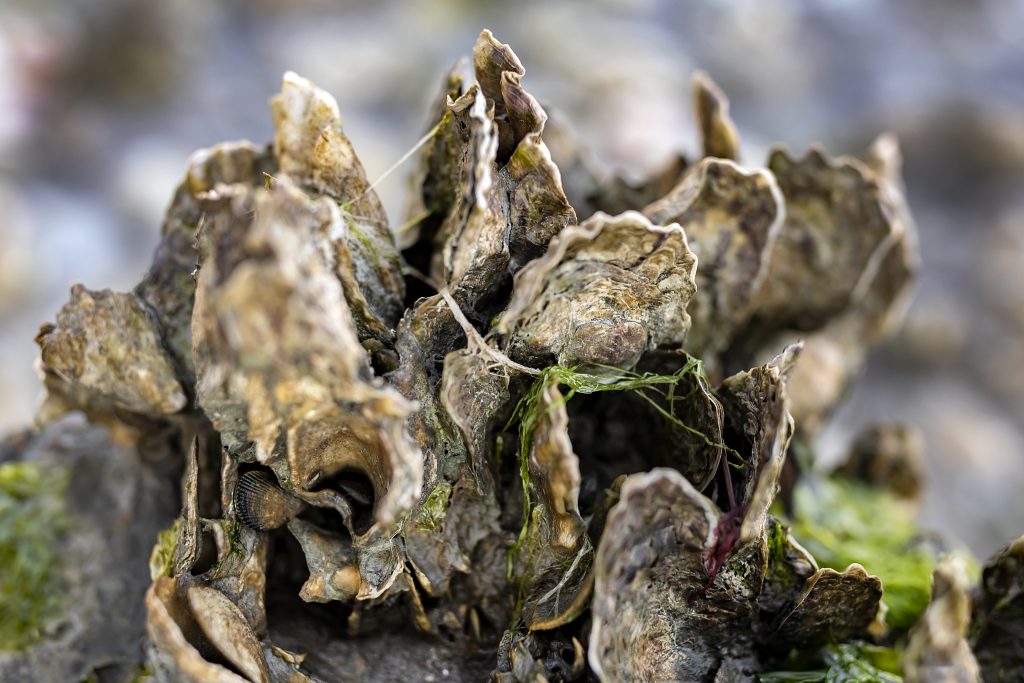Carolina global leader in oyster reef research, study finds
November 3, 2023
Carolina and several researchers are internationally prominent in the field of oyster reef research, according to new study.
A new study published in the journal Water analyzed global oyster reef research and identified authoritative experts and institutions in the field. The University of North Carolina at Chapel Hill ranked second in the world for oyster reef research and several scientists at, and with connections to, Carolina were identified as leading oyster researchers.
“Conducting research on one of the state’s amazing resources with prominent contributions from undergraduate students, conveying the information to people in the state and beyond who can benefit from it, and using the research as a platform for undergraduate education is a great example of the University fulfilling its mission to deliver value to our students, our state and the world,” said Mike Piehler, professor, director of the UNC Institute for the Environment and chief sustainability officer at Carolina.
The study showed oyster research accelerating globally in the mid-1990s, which the authors attribute to the global consensus that oyster reef conservation and research is a boon to ecosystems and economies across the globe.
The late Charles “Pete” Peterson, distinguished professor emeritus at the UNC-Chapel Hill Institute of Marine Sciences (IMS), was chief among those building the knowledge base at that time. Two former members of Peterson’s lab have gone on to become global experts on oysters. Jon Grabowski, professor of marine and environmental sciences at Northeastern University was ranked number one and Sean Powers, Angelia and Steven Stokes Endowed Professor in Environmental Resiliency at University of South Alabama was ranked number three for oyster researchers globally. Peterson was ranked sixth and Piehler ranked eighth.
Piehler’s pioneering exploration of the role that oyster reefs play in the function of estuarine ecosystems was recognized in the study. His lab first measured oyster reef mediated denitrification, a natural process that improves water quality without harming the shellfish or its habitat. In a 2011 study, Piehler and his colleague Ashley Smyth, assistant professor of biogeochemistry at University of Florida, found high rates of denitrification in oyster reefs relative to other habitats, which helps sustain the estuarine ecosystem.
“This is a really nice recognition of the importance of oyster research from Carolina and from my lab specifically,” Piehler said. “It felt like we were doing valuable work and it is rewarding to see this assessment of its global scale. I have been incredibly fortunate to have had outstanding lab members and colleagues who made our research possible.”
Carolina’s excellence in coastal research dates back to 1894, when Henry “Froggy” Wilson, Kenan Professor of Zoology, began taking UNC students to the N.C. coast. Since that time, the University has been deeply engaged in sustaining the state’s tremendous costal resources.
The UNC researchers and affiliates identified in the Water study first conducted their work at UNC’s IMS in Morehead City on the coast. Peterson helped build and motivate an excellent node of oyster expertise and research at IMS and this work continued since its inception 30 years ago. Because this research occurred on the coast it intentionally targeted specific challenges there, including water quality, fish habitat and effective ecosystem restoration.
Carolina trailed Virginia Institute of Marine Sciences by two publications in the ranking. The United States was the first to begin publishing oyster reef research in 1981 and ranked first in the number of contributed scientific publications on the topic. Australia and the Netherlands ranked second and third respectively.
Mike Piehler is the director of the UNC Institute for the Environment and chief sustainability officer for the University of North Carolina at Chapel Hill. He also holds joint professorships in the Department of Earth, Marine, and Environmental Sciences within the UNC College of Arts and Sciences and in the Department of Environmental Sciences and Engineering within the UNC Gillings School of Global Public Health.
